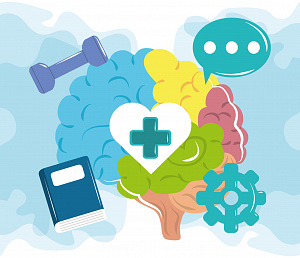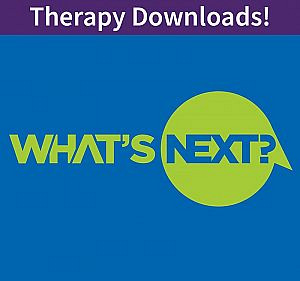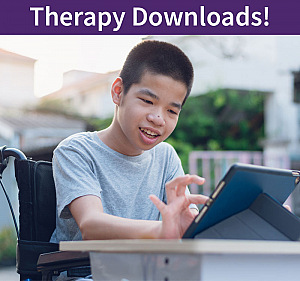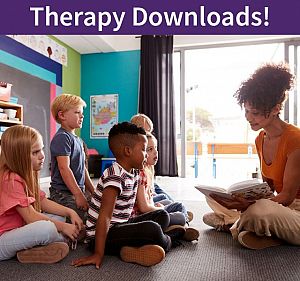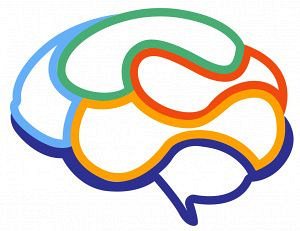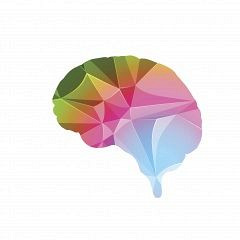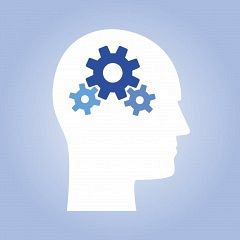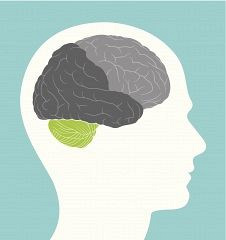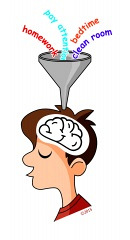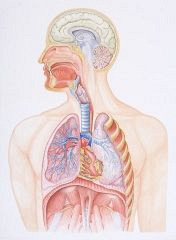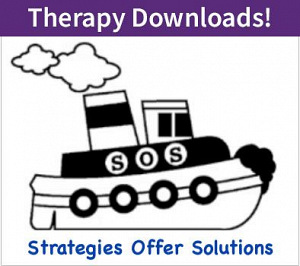Online SLP ASHA CEUs
Keyword(s): "cognition "
Sale thru 7/31/25
Pain Management Considerations In Speech Pathology Practice: What The SLP Needs To Know To Manage Persons Living With Chronic Pain #e299
Presenter: Mike Studer, PT, MHS, DPT
Over the past 20 years our understanding of the neurophysiology of pain has improved dramatically. This course in pain science and management is appropriate for the rehabilitation professional. Discussed will be practical, patient-centered approaches to managing chronic pain.... more+
Sale thru 7/31/25
The Power And Principles Of Narrative Intervention #e275
Presenter: Trina Spencer, PhD, BCBA-D
This course presents 10 principles of effective narrative intervention. Learn what's special about oral language and what's special about stories. Learn deficits that oral storytelling can help solve. Learn how oral storytelling instruction can effectively address the cluster of skills that are at the core of everything literacy related. Stories are everywhere. Why not harness their power?... more+
Sale thru 7/31/25
Topics On Supervision For Speech-Language Pathologists #e219
Presenter: Cassie Quinn, MS, CCC-SLP, BCS-S
Fulfill your ASHA Mentoring and Supervisory course requirements. This 10.5 hour course includes all 10 learning modules from the course series, "Topics on Supervision for Speech-Language Pathologists". Learners may stop and re-start the course at any point, and access to the course content is retained after course completion for ongoing reference and review. Specifically, this course will cover the following topics... more+
Sale thru 7/31/25
Topics On Supervision For Speech-Language Pathologists – Parts 3 And 4 #e215
Presenter: Cassie Quinn, MS, CCC-SLP, BCS-S
Fulfill your ASHA Mentoring and Supervisory course requirements. This 2-hour course discusses different approaches to developing effective communication skills between supervisor and supervisee including the process of giving feedback and leading conferences with supervisees.... more+
New
$37.00 USD
Brand new course
0.1 ASHA CEUs
A Hard Pill To Swallow #e338
Presenter: George Barnes, MS, CCC-SLP, BCS-S
This course discusses medications and cognitive changes in older adults. Participants will gain the knowledge and tools needed to reduce the impact of medications on vulnerable populations. Learn to identify medications that are known to cause cognitive changes and address these changes in collaboration with the prescribing team.... more+
New
Evidence-Based Cognitive Interventions For TBI #e327
Presenter: Justine Hamilton, MClSc, MBA
This course is for clinicians working with adult clients with moderate-to-severe brain injuries. Includes an overview of cognitive functions, frameworks to help guide intervention planning and outcome measurement, descriptions and demonstrations of specific cognitive intervention procedures, plus other important considerations when working with clients with TBI.... more+
What's Next?™ A Treatment Protocol To Help Adults With Cognitive Deficits Perform Daily Vital Tasks #z100
Presenter: Gwen Hinrichs, MA, CCC-SLP
What’s Next?™ is a structured, measurable and evidence-based program designed to provide greater levels of independence for persons with mild to moderate dementia. All materials needed to implement the What’s Next?™ program are included as part of this course – AMPS Assessment, AMPS Decision Tree, Acceptance Continuum, Routine Recording Worksheets, and Goal Writing Samples.... more+
Competencies In Using Alternative And Augmentative Communication (AAC) For Language Development #e310
Presenters: Megan Brazas, MA, CCC-SLP, QOM & Beth Speaker-Christensen, MA, CCC-SLP/L, ATP
This comprehensive online training provides a step-by-step process to conduct dynamic and collaborative AAC assessment, select optimal AAC systems for your learners, effectively coach communication partners, understand and use AAC prompt hierarchies, and expand vocabulary using AAC treatment principles. Case studies will be presented to facilitate the AAC evaluation and assessment process and to aid in treatment planning. Downloadable bonus resources allow you to get started with assessment and therapy with your current caseload.... more+
Understanding Avoidant/Restrictive Food Intake Disorder (ARFID) #e308
Presenter: Jennifer Dahms, MS, CCC-SLP, BCS-S
ARFID is a relatively new diagnosis to the medical community. This course will discuss the definition and symptoms of ARFID, additional diagnoses that can occur with a diagnosis of ARFID, and describe several screening and assessment tools that have been utilized and studied for diagnosing. Possible therapeutic, medical, and pharmacological interventions are discussed. Course content is applicable for both adult and pediatric client populations.... more+
Building Resilience In Our Young Clients #e284
Presenter: Adina Soclof, MS, CCC-SLP
An increasing number of children have difficulty coping with 21st century everyday life. This course provides a working definition of resilience and descriptions of the characteristics that may be associated with better outcomes for children who confront adversity in their lives. It also identifies particular groups of children – most notably those with developmental challenges and learning disabilities – who are most likely to benefit from resilience training.... more+
Strategies And Techniques For Helping Children Develop A Growth Mindset #e283
Presenter: Adina Soclof, MS, CCC-SLP
This course describes various challenges that can sidetrack children in their developmental and educational processes, leaving them with a sense of discouragement and helplessness. Participants in this course will learn strategies to help children become aware of and use their own strengths to develop a growth mindset and overcome academic challenges.... more+
Academic Language And How To Teach It #e274
Presenter: Trina Spencer, PhD, BCBA-D
This course takes a deep dive into academic language and how to teach it in meaningful contexts. Only 12% of students with language disabilities meet grade level expectations in reading and writing. When SLPs concentrate their language intervention on the dimensions of academic language—namely vocabulary, discourse structures, complex sentences, morphology, and inferencing—more students achieve academic expectations. ... more+
Auditory Processing And Cognitive Neuroscience: Applications For Intervention From Preschool Through Adolescence #e270
Presenter: Martha S. Burns, PhD, CCC-SLP
This course covers the neurology of auditory processing disorders with a specific focus on oral language, reading, and cognitive issues that research has shown can be associated with APD in children and adolescents. Includes evidence-based interventions and online, open-access therapeutic and educational resources.... more+
Mild Cognitive Impairment: Assessment Challenges And Solutions #e265
Presenters: Kathryn Bayles, PhD, CCC-SLP (Retired) & Kim McCullough, PhD, CCC-SLP
This course focuses on MCI assessment. Topics presented will include the value of early identification, evidence-based in-depth guidelines for assessment, information about types of assessments — both screening measures and broad based neuropsychological batteries, the factors to consider in interpreting test performance, and counseling clients given their test performance.... more+
Training Auditory Processing In Children With Autism Spectrum Disorders And Other Neurodevelopmental Disorders #e264
Presenter: Martha S. Burns, PhD, CCC-SLP
This course reviews neuroscience research on processes of neurodevelopment emphasizing auditory, cognitive, and communication networks. Research is explained and reviewed followed by clinical applications.... more+
Neurology And Neuroscience: Review And Update For Your Clinical Practice #e263
Presenter: Martha S. Burns, PhD, CCC-SLP
Learn basic neuroanatomy and neurophysiology to better understand and integrate the latest neuroscience research to populations including autism spectrum disorders, auditory processing disorders, motor speech disorders, language disorders in children and aphasia in adults... more+
A Game Plan For When Changes In Service Delivery Are Required: How To Support Parents And Students/Clients #e250
Presenter: LeAnna Heinrich, MS, CCC-SLP
This course focuses on a consultative model of intervention examining social and emotional concerns when providing services virtually. This course also includes functional speech and language strategies and is most relevant for clinicians working with preschoolers and school-age children.... more+
Integrating Mindfulness Techniques Into Pediatric Speech-Language Pathology #e249
Presenters: Jennifer Llado, MS, CCC-SLP & Brenda Lovette, MS, CCC-SLP
This course will explore the use of meditation and mindfulness practices for the direct application to pediatric speech-language pathology. Specific techniques will be discussed and demonstrated for integration into clinical practice. ... more+
Breaking Bad: Top-Down Executive Function Training And Clinical Interventions That Enhance Learning And Motivation #e244
Presenter: Martha S. Burns, PhD, CCC-SLP
This course will review new research on Social Emotional Learning (SEL), self-regulation, motivation and academic confidence. The content will include brain research on how regulatory skills mature in children and adolescents to enable purposeful, goal-oriented behavior for academic success. Research on best practices for... more+
Updates In Neuroscience: How Therapy Changes The Brain #e243
Presenter: Martha S. Burns, PhD, CCC-SLP
This course reviews current neuroscience research on mechanisms of neuroplasticity and is applicable to all age ranges. Specific emphasis is placed on cognitive-communication therapeutic drivers that positively affect brain maturation, reorganization, and recovery after injury. This course provides a practical, comprehensive overview of treatment methodology including... more+
The Impact Of Maltreatment On The Development Of Language #e241
Presenter: Kimberly Sanzo, MS, CCC-SLP
This course is intended for speech-language pathologists who work with children who may have adverse childhood experiences (ACEs). It will address the effects of negative childhood experiences, such as abuse and neglect, on language and cognitive development.... more+
Assessing And Treating Selective Mutism As A Speech-Language Pathologist #e240
Presenter: Emily Laracy, MA, MS, CCC-SLP/L
Selective Mutism (SM) is an anxiety disorder which profoundly affects social/pragmatic language skills and falls under the Speech-language Pathologist’s scope of practice. This presentation will provide assessment strategies, review important factors to consider in planning treatment, and provide practical suggestions of activities to use in therapy sessions.... more+
Mild Cognitive Impairment: Early Indicators And Clinical Interventions #e237
Presenter: Kathryn Bayles, PhD, CCC-SLP (Retired)
Language performance deficits are early indicators of MCI, and SLPs are uniquely qualified to identify those at risk for MCI and provide clinical intervention. Early identification is vital to delay or prevent progression to dementia, and diagnostic criteria and test performance cutoffs are now available. This course focuses on cognitive impairment and provides an overview of what cognition is, how memory is formed, types of memory, and a substantive segment on treatments and how they relate to the principles of neuroplasticity.... more+
Redeveloping Procedural Memories To Address Deficits In Swallowing, Communication And Rapid Decision Making #e209
Presenter: Mike Studer, PT, MHS, DPT
Are our current rehabilitative approaches encouraging patients to re-automatize skills? Or, are we encouraging patients to "think about" rather than subconsciously process skills that were once procedural memories? Learn to apply Procedural Learning and Dual Task Training to help individuals become skilled and automatized again to reduce or eliminate the need for constant monitoring to maintain communication and swallowing goals.... more+
Managing The Defiant Or Uncooperative Child During Therapy #e206
Presenter: Adina Soclof, MS, CCC-SLP
This course teaches clinicians effective and practical strategies to manage challenging and defiant behavior in their young clients. It will also discuss how clinicians can educate parents on how to manage difficult behavior and avoid power struggles at home.... more+
Traumatic Brain Injury In Children And Adolescents - Part 2: Moderate To Severe TBI #e205
Presenter: Paul Fogle, PhD, CCC-SLP
Based on the latest research from medical, rehabilitation, and speech-language pathology literature, this course covers essential information about moderate to severe TBI in infants (e.g., shaken baby syndrome), children, and adolescents. Numerous topics are discussed, including the unique aspects of moderate-severe TBI and SLP assessments and treatment. ... more+
Traumatic Brain Injury In Children And Adolescents - Part 1: Concussion (mTBI) #e204
Presenter: Paul Fogle, PhD, CCC-SLP
This comprehensive course discusses the types, causes, and management of mTBI in children and adolescents. Learn the signs and symptoms of mTBI and become more keenly aware of who is at risk. Presented is evaluation and management of concussion, and also the role of the SLP in helping children reintegrate back into the school environment following mTBI.... more+
Executive Functions And Self-Regulation: The Impact On Children And Adolescents #e188
Presenter: Rebecca Rowe, MA, CCC-SLP
This course provides a wide-focus view on the various areas of Executive Functioning from age 3 to 18. It reviews all the major areas of Executive Functioning, intervention strategies for each, research regarding Executive Functions, co-existing conditions, and brain structures related to Executive Functioning. Includes an in-depth case study and practical strategies to implement into your clinical practice.... more+
Rationale For Meditation Techniques In Speech-Language Pathology Practice #e186
Presenters: Jennifer Llado, MS, CCC-SLP & Brenda Lovette, MS, CCC-SLP
There is increasing scientific evidence that meditation and breath work practices have the potential to improve brain function. This course will discuss evidence-based ways to incorporate mindfulness practices into speech, language, cognitive and voice therapy for the adult population. This course will also discuss practical applications including documentation.... more+
Cognitive Deficits Associated With Right Hemisphere Brain Damage: Attention, Executive Function, Awareness And Memory #e185
Presenter: Margaret Blake, PhD, CCC-SLP
This course will cover disorders of cognition commonly associated with right hemisphere strokes in adults, including attention, executive function, awareness, and memory. Characteristics, assessment, and treatment of each will be discussed.... more+
Tackling Palliative Rehabilitation: The SLP's Guide To End Of Life Services #e183
Presenters: Irene Gofman, MS, CCC-SLP & Amanda Warren, MS, CCC-SLP
This course reviews ways in which cognitive, communication and dysphagia management in end of life care differ in comparison to management in other populations. It will contrast palliative care vs. hospice. Also addressed will be early decision making and advocacy for patients nearing the end of life, and cultural competency when approaching patients with diverse backgrounds.... more+
Perspectives On Speech And Language Interventions For Children With Developmental Disabilities #e182
Presenter: Martha S. Burns, PhD, CCC-SLP
This course reviews and updates clinical research on speech sound disorders, language and reading disorders, and cognitive disorders in children. Each section of the course concludes with a practical summary of the newest evidence-based assessment and intervention approaches. Also includes ‘hot topics’ for clinicians in school and clinical settings.... more+
A New Science Of Learning Model For The Treatment Of School-Age Speech And Language Deficits #e167
Presenter: Martha S. Burns, PhD, CCC-SLP
This practical course will review research from the new field of educational neuroscience as it applies to clinical practice with students who have speech-language and social-communication disorders. It will focus on research on the causes of language disorders, autism spectrum disorders, reading disorders and other neurodevelopmental learning disabilities. ... more+
Addressing The Cognitive Deficits That Often Accompany Speech And Language Deficits In School-Age Children #e166
Presenter: Martha S. Burns, PhD, CCC-SLP
This course will review the current research on disorders of attention, memory, perception, executive function and social skills in school-age children. The focus is clinical application with a review of assessments, evidence-based practice, and clinical activities that can be used in treatment sessions or in the classroom.... more+
Selecting And Implementing AAC Systems For Young Children With Complex Communication Needs #e147
Presenter: Joy McGowan, MS, CCC-SLP
Presented will be guidelines for participants to use in determining the optimal AAC system to ensure successful communication across environments. Includes five critical components to consider when selecting a system. Discussed will be the functional implications of cognition, speech and language development, vision, and gross/fine motor skills. Both high and low-tech communication options will be examined, including communication boards, PECS, switches, eye-gaze, mobile technology, and speech-generating devices.... more+
Counseling Skills For Rehabilitation Professionals: Applications For Stuttering And Other Speech, Language, Cognitive And Voice Disorders #e144
Presenter: Paul Fogle, PhD, CCC-SLP
This course will help SLPs and other rehabilitation specialists learn important counseling skills for working with clients/patients and their families during challenging interactions. Learn counseling skills that are particularly helpful with individuals who stutter or have cognitive-linguistic impairments related to stroke and TBI.... more+
Executive Function And Other Cognitive Considerations For Speech And Language Treatment Of Middle And High School Students #e130
Presenter: Martha S. Burns, PhD, CCC-SLP
Learn approaches to help middle and high school age students compensate for Executive Function difficulties in the classroom. This practical course reviews the research on maturation of cognition in typical middle and high school age students and those with EF difficulties. Discussed will be attention, theory of mind, working memory, decision making, emotional regulation, and goal setting and how these impact classroom performance.... more+
Medical Speech Pathology: The Influence Of Body Systems On Cognition, Communication And Swallowing #e116
Presenters: Robert Arnold, SLPD, CCC-SLP, BCS-S & Veda Cochran, RN, BSN
This course provides a holistic review of anatomy and physiology of the critical systems of the human body. Presented will be valuable information on how body systems function to promote, delay, or impede progress with intervention programs. This course puts it all together for the SLP to provide a deeper understanding of how body systems function in relation to the assessments and interventions employed by the SLP.... more+
Strategy-Based Interventions For The School-Age Child #e84
Presenters: Ruthann Jarvis, MA, CCC-SLP & Elizabeth Peterson, MA, CCC-SLP
With growing caseloads, SLPs are increasingly challenged to make meaningful therapy progress with each student. This course presents the "Strategies Offer Solutions" intervention formula. Apply this formula to create practical, functional, and easy-to-implement strategies to target articulation, language, grammar, organizing thoughts, inferring & reasoning, written language, attention, fluency awareness, and eye contact. This course includes all the downloads needed to implement this approach with success!... more+
Screening For Cognitive Impairments: Evidence-Based Tools #e79
Presenter: Jacqueline J. Hinckley, PhD, CCC-SLP, BC-NCD
Based on prevalence data, perhaps 50% of a typical clinician's caseload will include individuals with some type of cognitive impairment. This course provides clinicians with information needed to conduct effective cognitive screenings. Discussed will be evidence-based, formal cognitive screening tools to ensure that these impairments will be detected. All of these tools can be used in about 5-10 minutes.... more+
Assessing Cognition In Aphasia And Other Language Impairment #e30
Presenter: Jacqueline J. Hinckley, PhD, CCC-SLP, BC-NCD
Do you have clients with both aphasia and cognitive impairments? This course addresses critical questions about assessing cognitive abilities in aphasia. Discussion includes why, when, and how to assess cognition in aphasia. Specific assessment tools that are appropriate for use with individuals with aphasia are described.... more+





